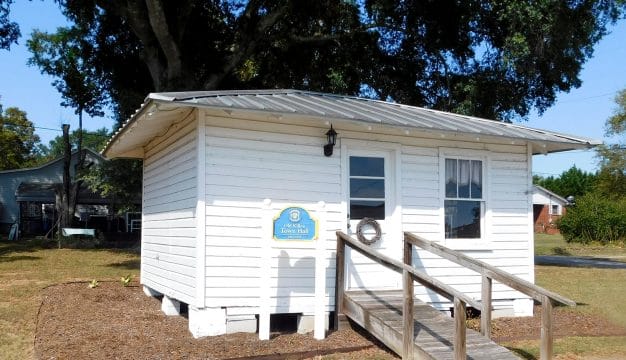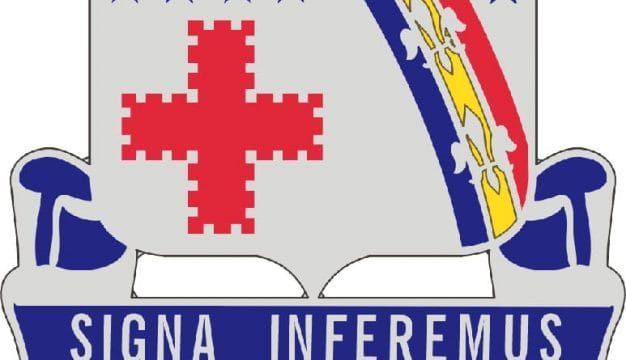William Bismarck Bowling
William Bismarck Bowling (1870-1946) exerted a significant influence on Alabama's politics, judicial and education systems, and religious organizations during the first half of the twentieth century. Throughout his diverse professional life, Bowling worked as a teacher, attorney, U.S. representative for Alabama's Fifth Congressional District for four terms, state prosecutor for Alabama's Fifth Judicial District, and finally judge of that district, a position that he held until his death.
 William Bismarck Bowling
Bowling was born in Iron City, Calhoun County, on September 24, 1870, to William E. Bowling, a physician, and Sarah Elston Bowling; he had five siblings. His maternal great-grandfather was William Clark of the famed Lewis and Clark Expedition. After graduating from the State Teachers College (present-day Jacksonville State University) in Jacksonville in 1893, Bowling taught in the city schools of Montgomery, Montgomery County, from 1893 to 1896 and in Columbus, Georgia, from 1896 to 1899. On June 2, 1896, he married Frances Collins, a first-generation English immigrant; the couple would have four children.
William Bismarck Bowling
Bowling was born in Iron City, Calhoun County, on September 24, 1870, to William E. Bowling, a physician, and Sarah Elston Bowling; he had five siblings. His maternal great-grandfather was William Clark of the famed Lewis and Clark Expedition. After graduating from the State Teachers College (present-day Jacksonville State University) in Jacksonville in 1893, Bowling taught in the city schools of Montgomery, Montgomery County, from 1893 to 1896 and in Columbus, Georgia, from 1896 to 1899. On June 2, 1896, he married Frances Collins, a first-generation English immigrant; the couple would have four children.
Around the turn of the century, Bowling decided to change careers from education to law and began studying jurisprudence under private practitioners. After reading law under the supervision of the law firm of Robinson and Duke in LaFayette, Chambers County, Bowling was admitted to the state bar on January 1, 1900. He practiced law for two years in LaFayette before moving to Dadeville, Tallapoosa County, to form a partnership with William Martin Lackey. In addition to his private practice with Lackey and a stint as a district prosecutor in Dadeville, Bowling remained involved in education as the chairman of Dadeville's board of education for 12 years. He also joined philanthropic and fraternal organizations such as the Shriners, the Masonic Knights Templar, and the Knights of Pythias during his time in LaFayette and Dadeville.
Bowling returned to LaFayette in 1918 to reestablish his private practice there. He also served for several years as the director of the East Liberty Baptist Association, an organization that represented all of the Southern Baptist churches in Chambers County and included more than 5,000 members. In 1920, Bowling won the seat representing Alabama's Fifth District in the U.S. House of Representatives vacated by influential Alabama Democrat and outspoken white supremacist J. Thomas Heflin, who had decided to run for the Senate.
Bowling has no record of sponsoring any successful legislation during his tenure in Congress, which may have been because Democrats were in the minority: Republicans dominated both houses of Congress throughout the 1920s. Bowling served on five different House Standing Committees: the Election Committee, the Insular Affairs Committee, the Patents Committee, the Post Office and Post Roads Committee, and the Judiciary Committee. Bowling sat on the Judiciary Committee for longer than any of the others, serving during the 68th through the 70th Congresses.
In August 1928, Gov. David Bibb Graves appointed Bowling Circuit Judge of Alabama's Fifth Judicial District to fill a vacancy. Bowling decided to relinquish his congressional seat and return to Alabama's legal forum. The voters of the Fifth District returned Bowling to the judgeship three times over the course of the next 18 years. Bowling's open seat was filled that November by Clay County native Lafayette Lee Patterson, brother of Albert Patterson and uncle of Gov. John Patterson.
Upon returning to LaFayette from Washington, D.C., Bowling again heavily involved himself in state religious and educational organizations. He resumed teaching Sunday school classes at the First Baptist Church of LaFayette. He deeply immersed himself in scripture later in life, and fellow congressman Albert Raines later eulogized him as one of the preeminent scholars of biblical history in the state. During his two-year term as president of the Alabama State Baptist Convention, Bowling collaborated with other prominent Baptists to direct organizational and group initiatives within the denomination. Bowling also served from 1943 to 1946 on the board of trustees of Alabama Polytechnic Institute (present-day Auburn University) in Auburn, Lee County.
On December 27, 1946, Bowling reviewed one of his favorite books, The Adventures of Captain Simon Suggs, a collection of stories based on the Alabama experiences of Johnson Jones Hooper, at a meeting of the LaFayette Rotary Club. While discussing one of the book's chapters, Bowling braced himself against a table and suddenly fell to the floor. Attempts to revive him were unsuccessful, and he was pronounced dead within a few minutes. At the time of his death, Bowling was serving out his last term as a judge; he did not seek re-election in 1946 and would have retired on January 20, 1947. He is buried in LaFayette Cemetery.
Further Reading
- Canon, David T., Garrison Nelson, and Charles Stewart III. Committees in the U.S. Congress 1789-1946. Vol. 3. Washington, D.C.: Congressional Quarterly, 2002.
- Dubose, Joel Campbell, ed. Notable Men of Alabama: Personal and Genealogical, with Portraits. Vol. 2. Atlanta: Southern Historical Association, 1904, 444.
- House of Representatives, U.S. Congress. "The Late Honorable W.B. Bowling: Extension of Remarks of Hon. Albert Rains of Alabama." Appendix to the Congressional Record, 80th Congress, First Session, January 7, 1947, A56-A57.
- "Judge Bowling Dies Suddenly." Opelika Daily News, 27 December 1946, 1.



